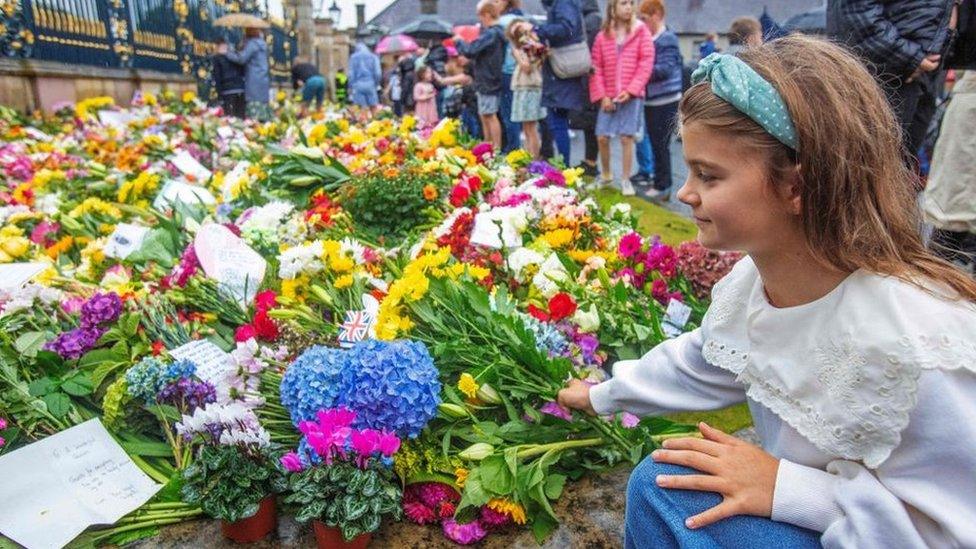Queen Elizabeth II: How does King Charles's role differ in NI?
- Published
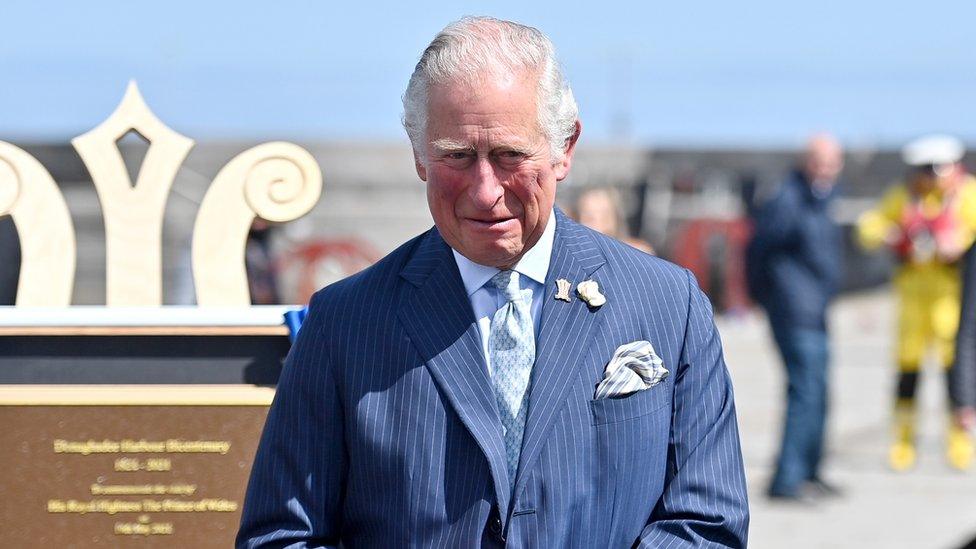
Charles visited Donaghadee, County Down, in 2021, when he was the Prince of Wales
King Charles III is monarch of the whole United Kingdom, but some of his roles and royal insignia vary in its various constituent parts.
On Tuesday, he will make his first visit as monarch to Northern Ireland, following on from a trip to Scotland on Monday.
In Scotland, there are some very visible differences, such as the different Royal Standard.
So what roles does he carry out differently in Northern Ireland, and how is he represented when he visits?
The Royal Standard
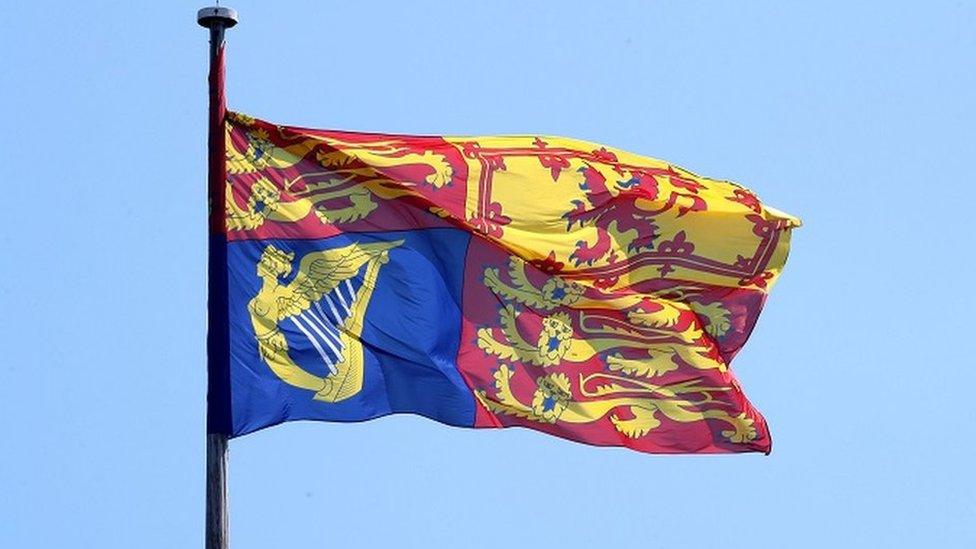
The harp represents Northern Ireland on the Royal Standard
Unlike when he is in Scotland, the King's Royal Standard used in Northern Ireland is the same as the one used in England and Wales.
The Royal Standard is flown when he is in residence in a Royal Palace, such as Hillsborough Castle, and on the King's car on official journeys.
The Royal Standard in Northern Ireland is made up of four quarterings - England is represented in the first and fourth quarters by three lions, Scotland in the second quarter by a lion rampant, and Northern Ireland in the third quarter by a harp.
The harp is taken from the Irish coat of arms which dates back centuries and it remained as a representation of Northern Ireland even after the rest of the island became a republic.
The official residence
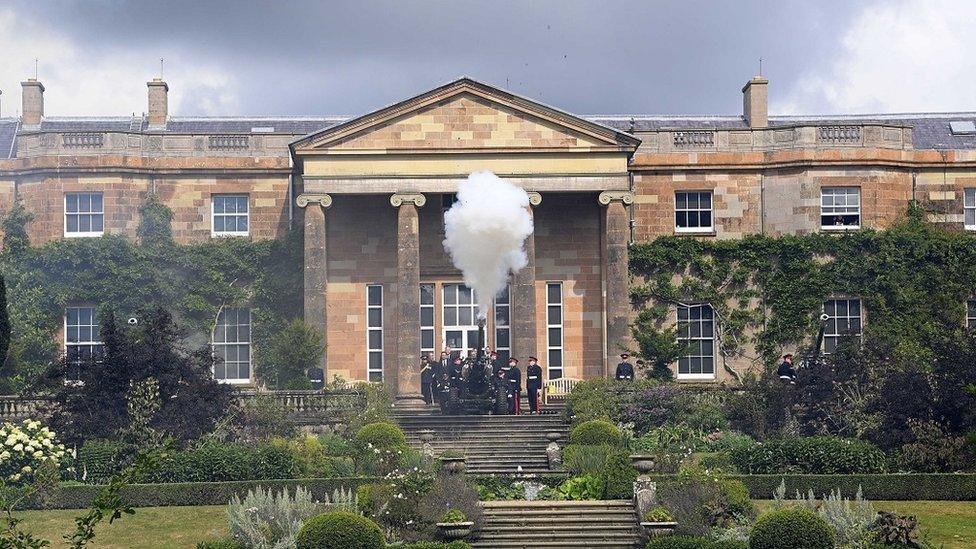
A gun salute at Hillsborough Castle marked the King's accession
The King's official residence in Northern Ireland is Hillsborough Castle, in the village of Royal Hillsborough, in County Down.
In 1922, it was bought by the UK government to become the residence of the monarch's representative in the newly-created Northern Ireland, known as the governor.
That post was abolished in 1972 and many of its functions passed to the secretary of state for Northern Ireland. Hillsborough Castle is also their official residence.
The village of Hillsborough was given the prefix "Royal" in 2021 to recognise its long connection with the Royal Family.
The Northern Ireland Assembly
There are some important differences between the relationship the King has with the Northern Ireland Assembly and his role in connection with the Scottish and Welsh Parliaments.
Queen Elizabeth II opened every session of the Scottish and Welsh Parliaments from their establishment in 1999 onwards - this is similar to the role the monarch plays at the UK Parliament.
The Northern Ireland Assembly does not have an equivalent opening ceremony, although the Queen visited its home at Stormont and met its members.
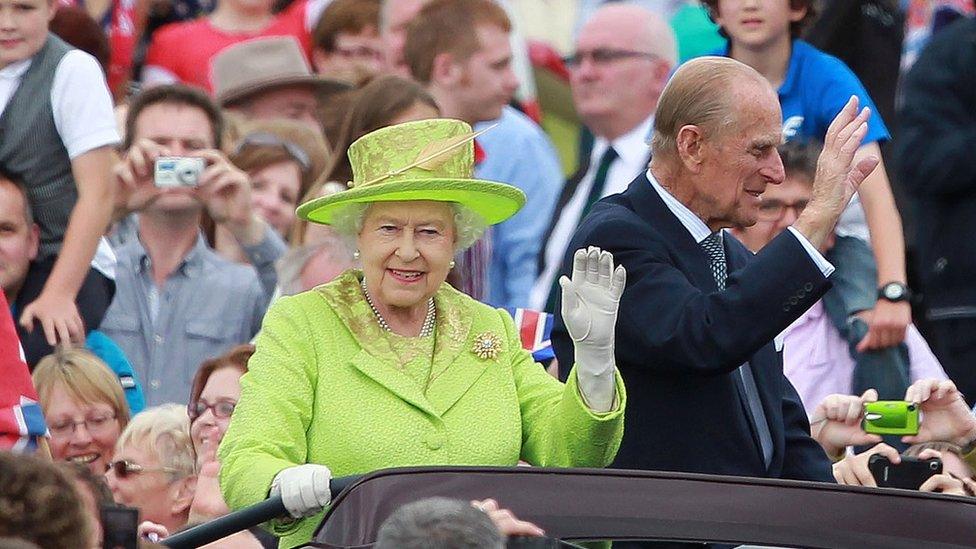
Queen Elizabeth II and Prince Philip at Stormont in 2012
Members of the assembly also do not swear an oath.
When members of the Scottish and Welsh Parliaments take their seats, they swear allegiance to the monarch.
The same happens at Westminster, where senior MPs took the new oath to the King on Saturday.
In Northern Ireland, members instead make a pledge of office which includes committing to discharging the duties of their office in good faith and a commitment to non-violence, but there is no reference to the monarch.
Laws passed by the assembly do, however, need to receive Royal Assent in the same way as the other legislatures.
Ceremonial roles
In addition to his constitutional roles as monarch, King Charles holds a number of other ceremonial positions.
For example, he is colonel-in-chief of some of the Army regiments with Irish heritage, including the Royal Dragoon Guards which is descended from a number of regiments, including the Inniskilling Dragoons, and has the freedom of the town of Enniskillen, in County Fermanagh.
He is also the sovereign of the Most Illustrious Order of St Patrick - an order of chivalry associated with Ireland and the equivalent of the Order of the Thistle in Scotland.
However, nobody has been appointed to the order since the partition of Ireland.


Related topics
- Published13 September 2022
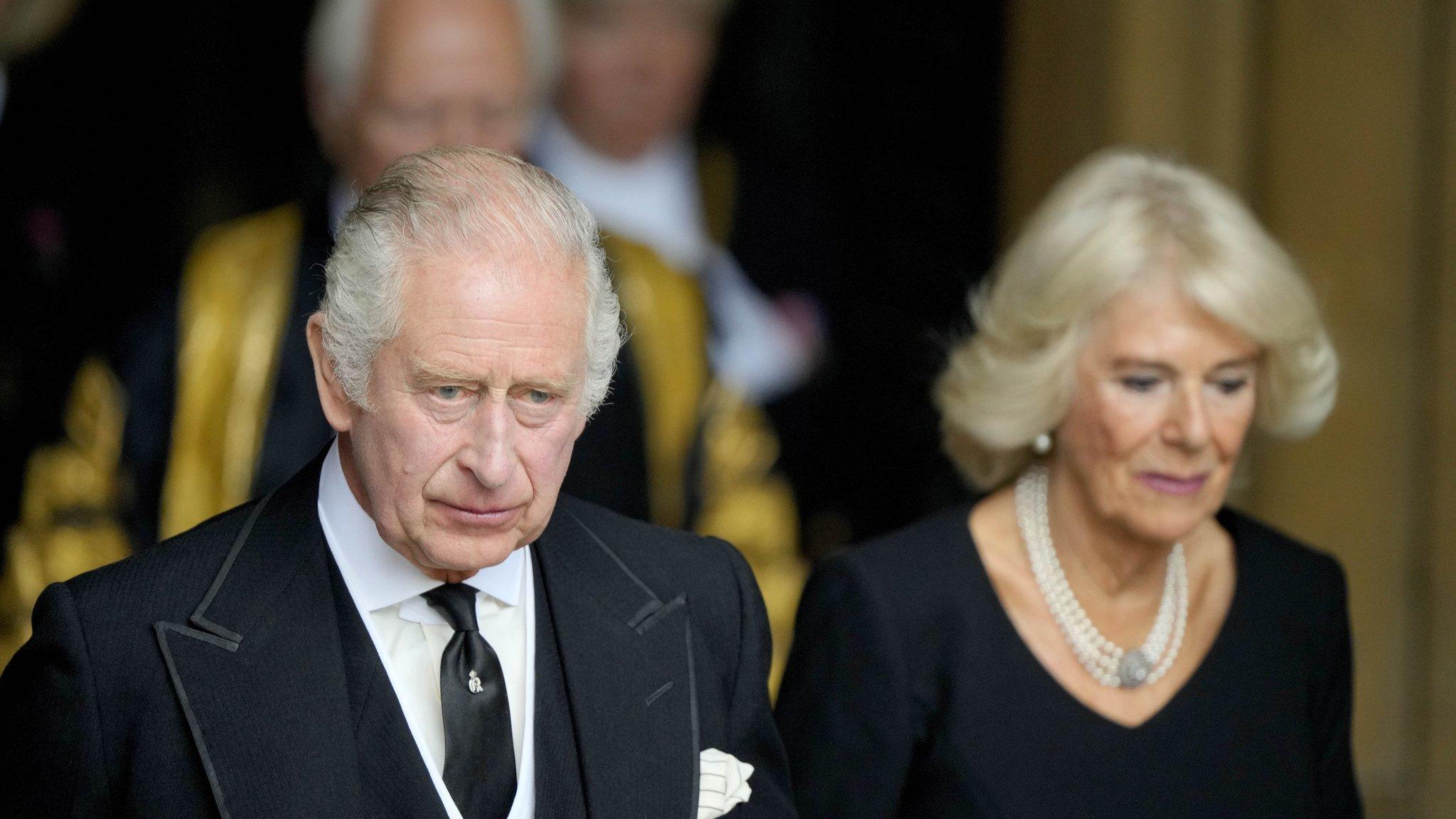
- Published9 September 2022
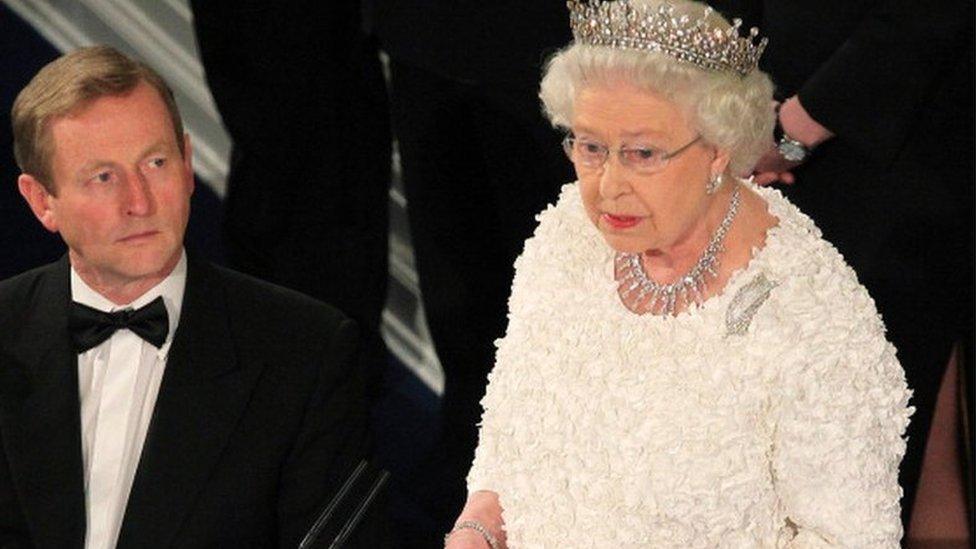
- Published12 September 2022
